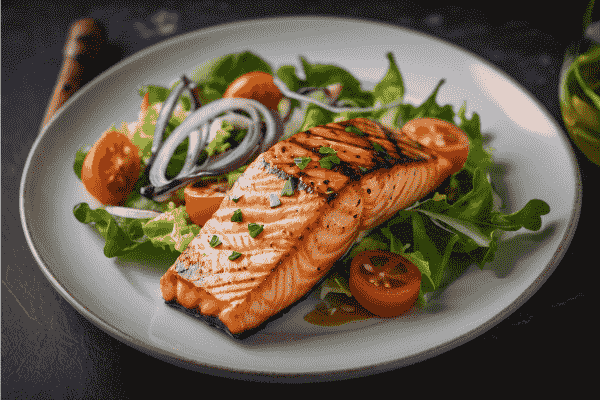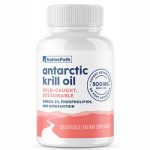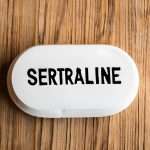Curious about the health implications of consuming Swai fish? This blog post dives into why Swai fish may not be the best choice for your diet.
Unveiling the reasons behind its questionable reputation, we explore the potential drawbacks and considerations when it comes to including this fish in your meals. Stay informed to make healthier choices for yourself and your loved ones.
Quick Summary
Swai fish is often considered bad due to its potential exposure to pollutants and antibiotics in farming practices, leading to health and environmental concerns.
Understanding Swai Fish
What is Swai Fish?
Swai fish, a type of catfish originating from Southeast Asia, is renowned for its mild taste and white flesh. It is often promoted as an affordable seafood choice.
Common Sources
-
Swai fish is commonly imported from Vietnam to the US.
-
It can be easily found in supermarkets and eateries.
-
Its popularity stems from being a low-cost option compared to other fish varieties.
Nutritional Profile
Swai fish is low in calories and fat, making it a favorable choice for those watching their diet. While it provides a good amount of protein, it lacks the richness in omega-3 fatty acids that other fish offer.
Health Concerns Linked to Swai Fish
Swai fish, often farmed in unsanitary conditions, can contain harmful chemicals and antibiotics, raising health concerns for consumers.
Contamination Risks
Swai fish may contain high levels of antibiotics and chemicals, posing potential health risks to consumers. Due to intensive farming practices, swai fish is vulnerable to contamination, further raising concerns about its safety.
The contamination risks associated with swai fish highlight the importance of understanding its sourcing and potential hazards.
Antibiotic Use
Antibiotics are commonly used in swai fish farming to prevent infections and promote growth. However, the overuse of antibiotics in this context can lead to antibiotic resistance, potentially affecting consumer health.
The excessive antibiotic use in swai fish farming underscores the need for sustainable farming practices to mitigate health risks.
Allergic Reactions
Individuals with seafood allergies should be cautious when consuming swai fish as some may experience allergic reactions, ranging from mild discomfort to severe symptoms.
Being aware of potential allergic responses is crucial for those with sensitivities, ensuring their safety when consuming swai fish.
Mercury Levels
Swai fish has been found to contain elevated levels of mercury, which can be harmful if consumed in excess. Consumers should be mindful of the potential risks associated with mercury in swai fish and moderate their intake accordingly to safeguard their health.
Environmental Impact
Farming Practices
Swai fish is often raised on crowded fish farms, leading to environmental concerns. The farming practices involved in swai fish cultivation typically involve the use of antibiotics and chemicals. These practices can result in negative impacts on the surrounding river ecosystems.
-
Pros: Provides a cheap source of fish for consumption.
-
Cons: Harmful farming practices can lead to pollution and ecosystem disruption.
Habitat Destruction
The expansion of swai fish farms can contribute to habitat destruction in river environments. This can disrupt the natural balance of local ecosystems, affecting various species.
The long-lasting effects of habitat destruction caused by swai fish farming highlight the importance of sustainable aquaculture practices.
-
Swai fish farming contributes to habitat loss for other aquatic organisms.
-
Habitat destruction from swai fish farming can lead to biodiversity loss and ecosystem instability.
Ethical Considerations
Labor Practices
Labor practices in swai fish farming may raise ethical concerns. The treatment of workers, including wages and working conditions, varies across different swai fish farms. Some farms may have better labor practices than others, highlighting the need for industry-wide standards and oversight.
-
Variability in labor conditions
-
Need for industry-wide standards.
Working conditions for laborers in swai fish farms can vary significantly. From long hours to inadequate safety measures, the labor practices within the industry can be a point of contention. Ensuring fair treatment and safe working environments for all employees should be a priority.
Animal Welfare
Animal welfare in swai fish farming is becoming an increasingly significant issue. The living conditions of swai fish in farms might not always prioritize their well-being, potentially leading to stress and poor health among the fish population.
-
Growing concern for animal welfare
-
Impact on fish well-being
Practices within the swai fish farming industry could have adverse effects on the overall welfare of the fish. It is crucial to address these concerns to ensure that ethical standards are met throughout the production process.
Conclusion
In evaluating the impact of consuming Swai fish, it becomes evident that this choice may not align with your health, ethical, and environmental considerations.
The health risks associated with Swai consumption, coupled with its questionable origins and farming practices, raise red flags that cannot be ignored.
Considering these factors, exploring alternative seafood options that prioritize your well-being and align with your values is crucial.
It’s time to take charge of your health and make informed decisions about the food you consume. By opting for sustainable and ethically sourced seafood choices, you not only safeguard your well-being but also contribute to a healthier planet.
Your choices matter, so choose wisely for a healthier you and a better world.
Frequently Asked Questions
Why should I be cautious about consuming Swai Fish?
Swai fish may contain high levels of contaminants like mercury and may be farmed in conditions that raise concerns about hygiene and safety standards. It’s important to consider these factors when choosing seafood for your diet.
Is Swai Fish harmful to health?
Consuming Swai fish in moderation is generally considered safe for most people. However, due to potential contamination and farming practices, it’s advisable to limit intake, especially for vulnerable populations such as pregnant women and children.
How does Swai Fish impact the environment?
Swai fish farming can have negative environmental consequences such as water pollution, habitat destruction, and the use of antibiotics. Choosing sustainable seafood options helps reduce the ecological footprint associated with food production.
Are there ethical concerns related to Swai Fish consumption?
Ethical considerations surrounding Swai fish primarily revolve around farming practices that may compromise animal welfare and sustainability. Opting for ethically sourced seafood ensures you support responsible aquaculture methods and humane treatment of marine life.



